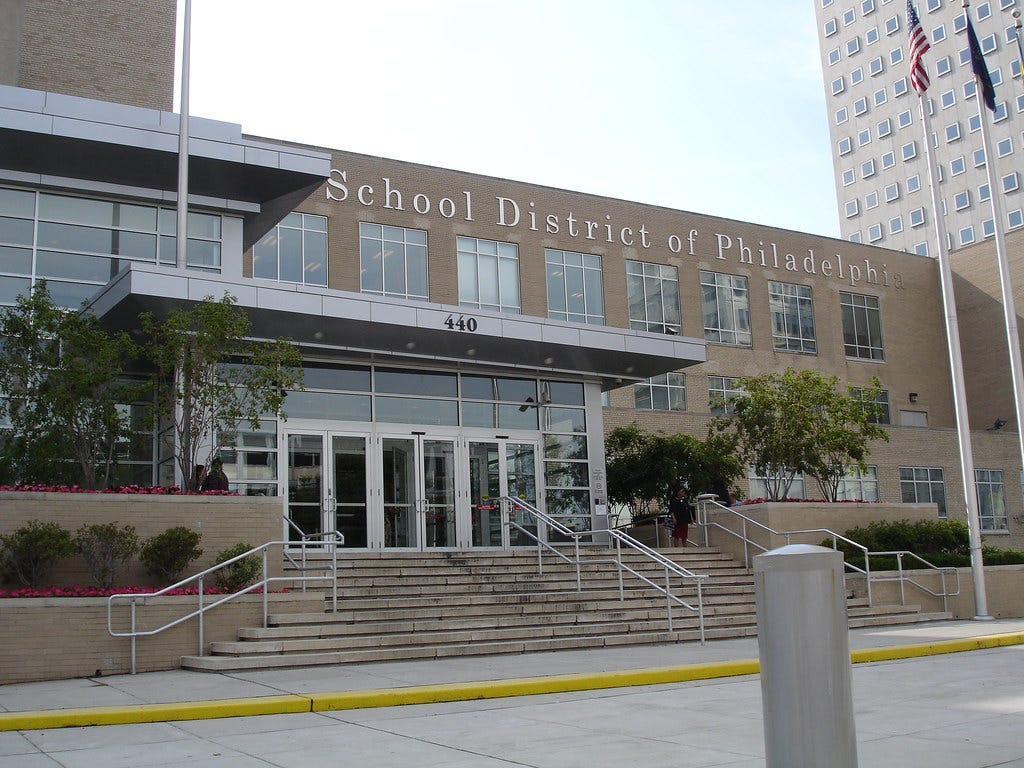Philadelphia Schools Partner with Muslim Advocacy Group to Promote Inclusive Curriculum and Teach Sensitive History
In a landmark collaboration, the Council on American-Islamic Relations (CAIR) Philadelphia announced Monday it will partner with the city’s public school system, offering educator guides and workshops aimed at fostering inclusivity and presenting nuanced perspectives on complex subjects, including 9/11 and American Jewish political power.
CAIR, a prominent Muslim advocacy organization, announced via Instagram that the partnership will commence in the 2025 academic year, offering select classroom resources, teacher training, and workshops. The initiative, CAIR said, seeks to ensure that all students feel “seen, safe and supported,” and to “build more inclusive schools” by equipping educators with tools to address the needs of diverse populations.
New Guidance on Teaching September 11 and Diverse History
A cornerstone of CAIR Philadelphia’s educational effort is a guide titled “Remembering and Reflecting: Teaching September 11, 2001 in Diverse Classrooms.” The document urges teachers to prepare lesson plans that avoid linking Islam with terrorism and to focus on the broader social impacts following the attacks, including bigotry and hate crimes against Muslim, Sikh, Arab, and other minority communities.
“Avoid using language that validates the claims of the 9/11 attackers by associating their acts of mass murder with Islam and Muslims. For example, avoid using inaccurate and inflammatory terms such as ‘Islamic terrorists,’ ‘jihadists,’ or ‘radical Islamic terrorists,’” the guide instructs.
The guidance further recommends that discussions of the aftermath—such as the invasions of Afghanistan and Iraq and the opening of Guantanamo Bay—also include analysis of domestic incidents of prejudice and violence against minorities in the U.S. Educational experts and community advocates say such perspectives are vital for promoting understanding and minimizing stereotyping in increasingly multicultural classrooms.
Controversy over the “American Jews and Political Power” Workshop
The partnership previously included a workshop titled “American Jews and Political Power: Myth or Reality,” designed to examine Jewish influence in U.S. politics, controversy surrounding Israel’s occupation of Palestinian territories, and the role of Jewish activists in the Boycott, Divestment, and Sanctions (BDS) campaign against Israel. According to Fox News, this section was recently removed from the CAIR Philadelphia website, and requests for comment were sent to both CAIR and the School District of Philadelphia regarding the decision.
The website had described the workshop’s goal as providing a nuanced perspective on debates within the Jewish community over Israel’s policies and supporting student engagement with complex global issues.
Other seminars offered by CAIR Philadelphia include “Out of the Blue: Police Conduct Seminar,” “What is Sharia?” and “Fake News: Mass Media,” each intended to foster critical thinking and counter media-based stereotypes of Muslims and people of color.
CAIR Leadership and Criticism
CAIR has faced scrutiny and controversy in recent years. In 2023, its executive director, Nihad Awad, publicly stated that he was “happy” to see the October 7 attacks on Israel, referring to Gazans “breaking the siege” and walking “free into their land that they were not free to walk in.” The Biden administration condemned Awad’s comments as “shocking, antisemitic statements in the strongest terms”.
This month, Sen. Tom Cotton (R-Ark.) called on the Internal Revenue Service (IRS) to revoke CAIR’s nonprofit status, citing alleged ties to the Muslim Brotherhood and Hamas—a claim CAIR has consistently denied.
Educator and Community Reactions
Educators and community leaders are divided over the partnership. Some praise CAIR’s efforts to address the persistent problem of bullying and exclusion faced by Muslim students. Others question the appropriateness of political topics and urge transparency and oversight to ensure classroom materials foster critical inquiry—rather than reinforce divisive narratives.
The School District of Philadelphia has not publicly commented on the matter as of the time of publication. Several Jewish organizations have cautioned that discussing topics such as “Jewish political power” requires sensitivity and balance, emphasizing the importance of curriculum review by diverse stakeholders.
Balancing Inclusion with Critical Debate
As Philadelphia’s public schools prepare for the rollout of CAIR’s training and resources, key questions remain about how educators will strike a balance between inclusion, critical debate, and the avoidance of stereotypes. The controversy highlights the challenges faced by large urban districts in delivering history and civics instruction that reflects the diversity of American society while adhering to standards of fairness and factual accuracy.
The partnership, observers note, could serve as a model for other school systems seeking to navigate multicultural education. At the same time, it highlights the risks inherent in addressing complex and politically sensitive subjects in public schools. This process requires transparency, accountability, and input from all affected communities.
As new materials and training sessions begin, Philadelphia’s experiment will offer insight into how American schools can foster empathy, dialogue, and understanding in an era of increasing polarization and cultural change. The outcome may hold national significance for policymakers and educators seeking ways to navigate diversity in education moving forward.



